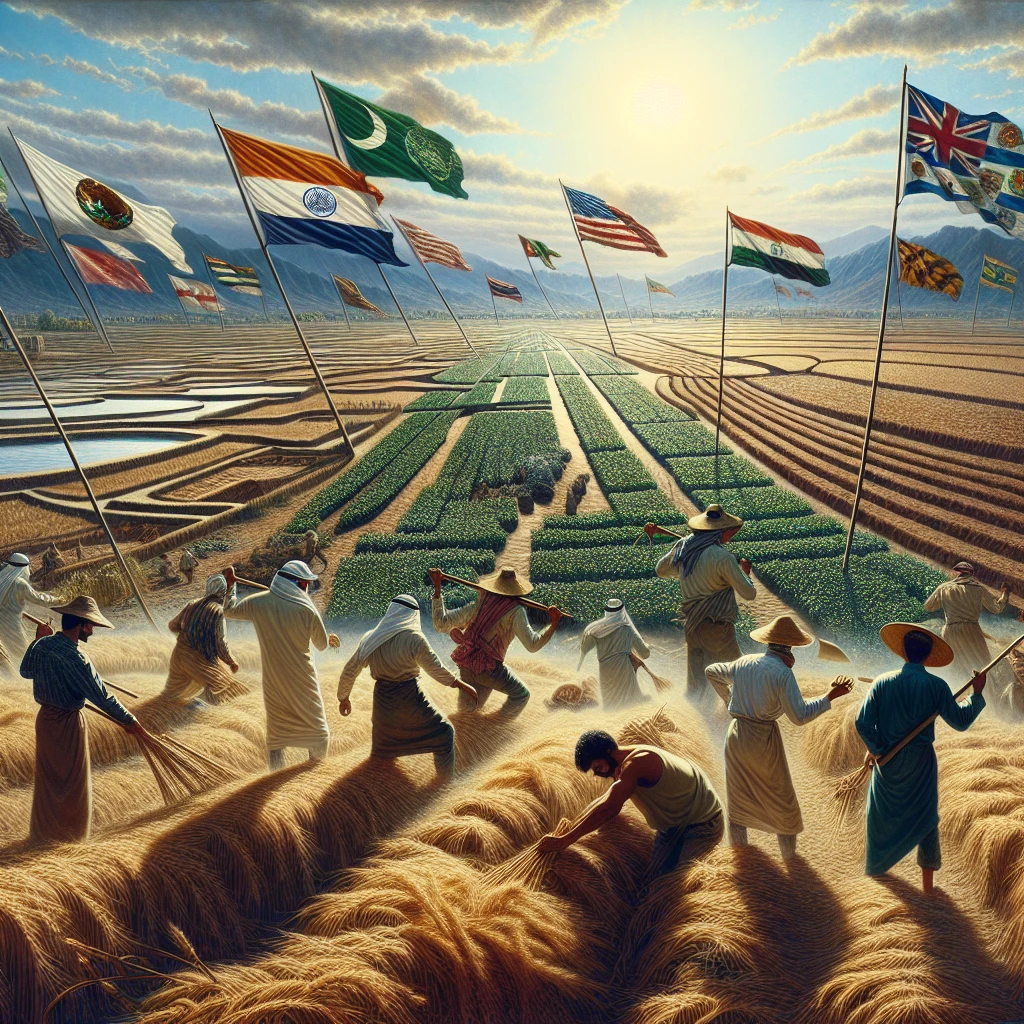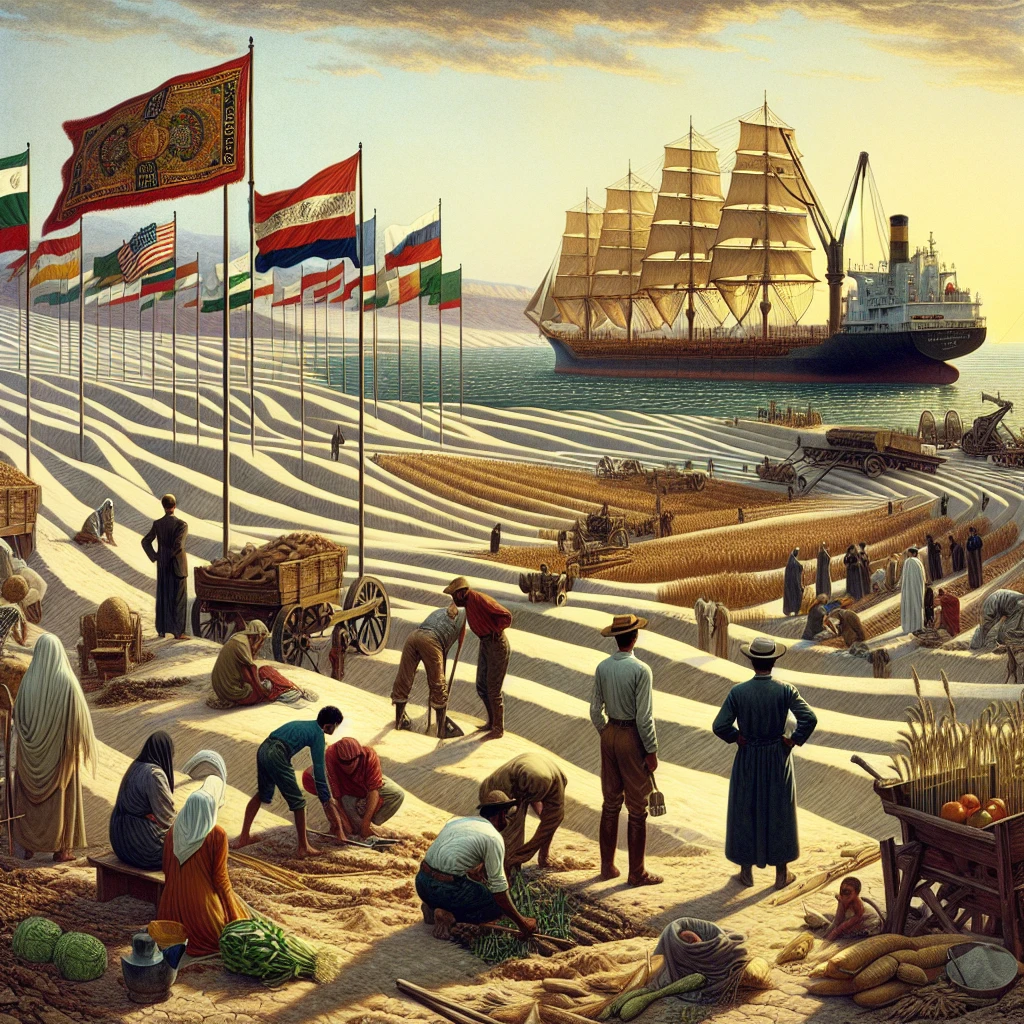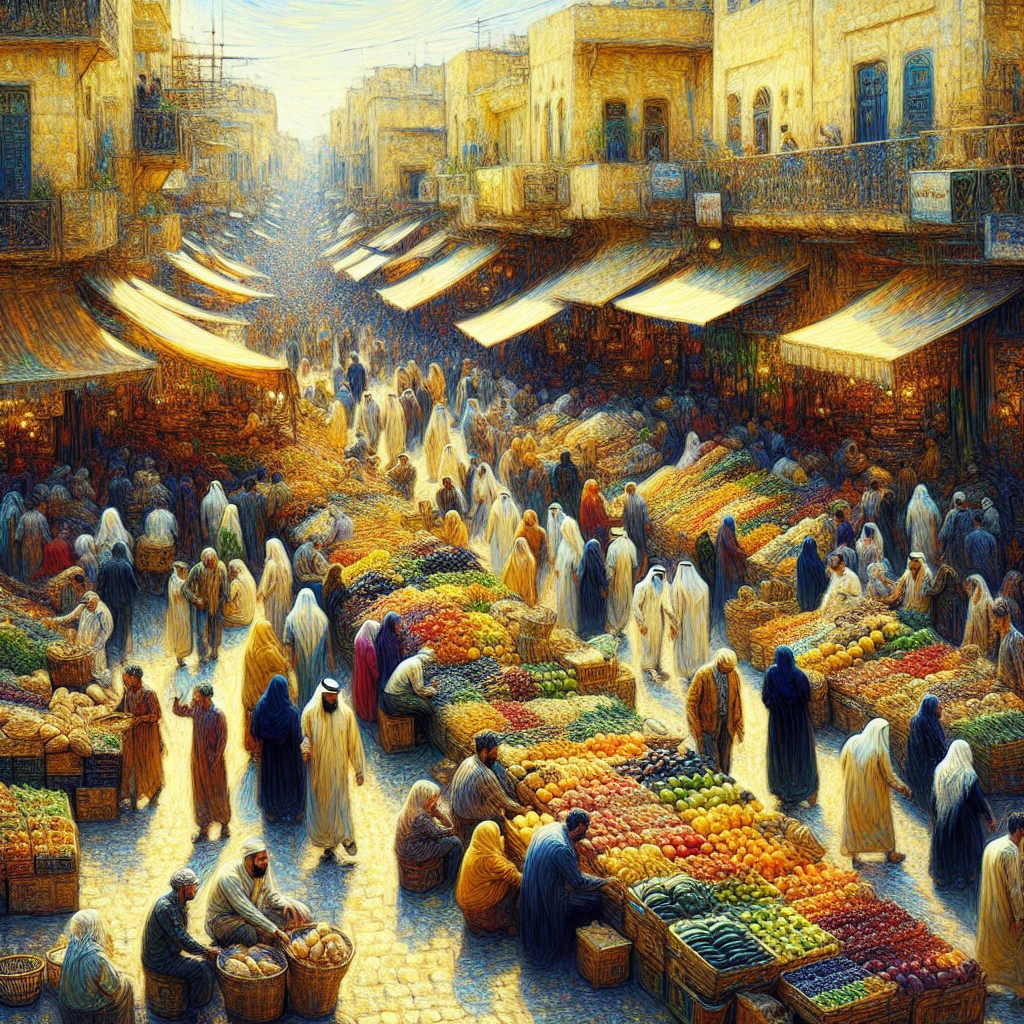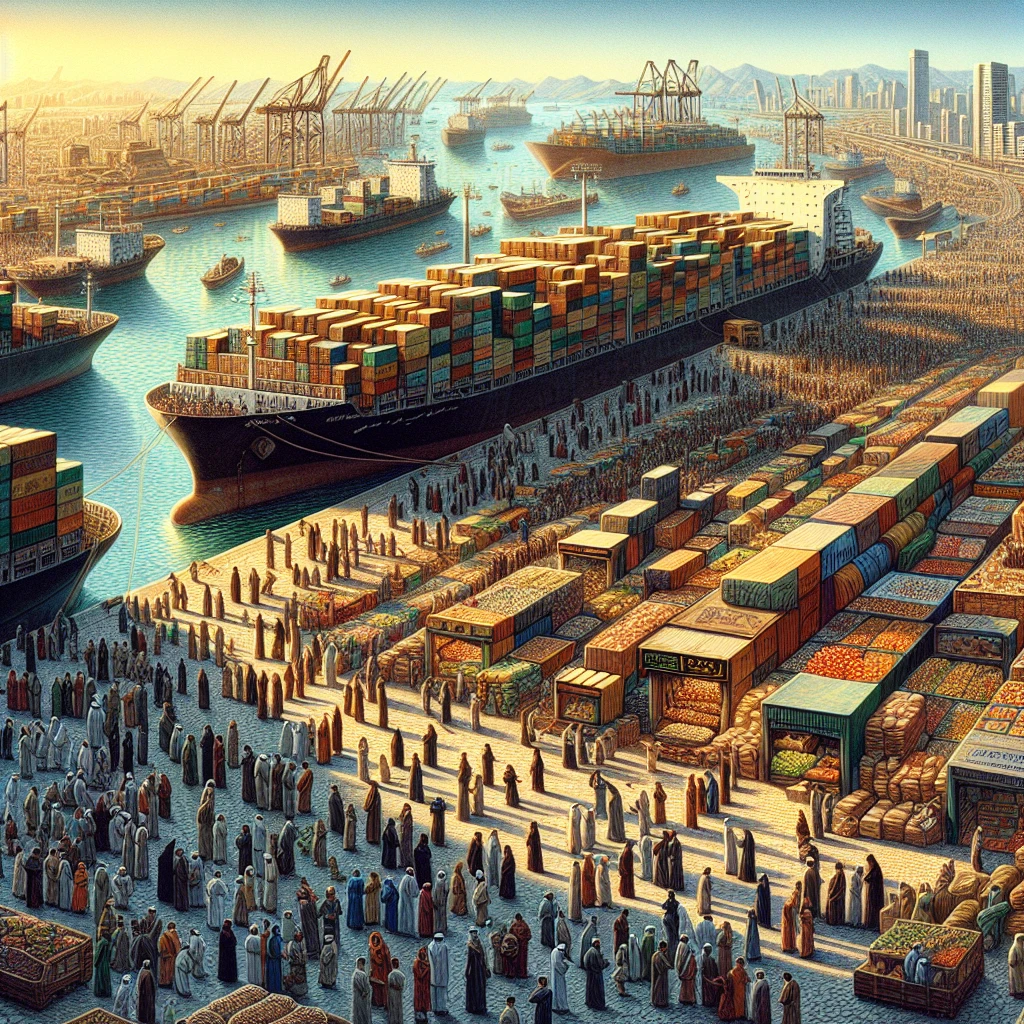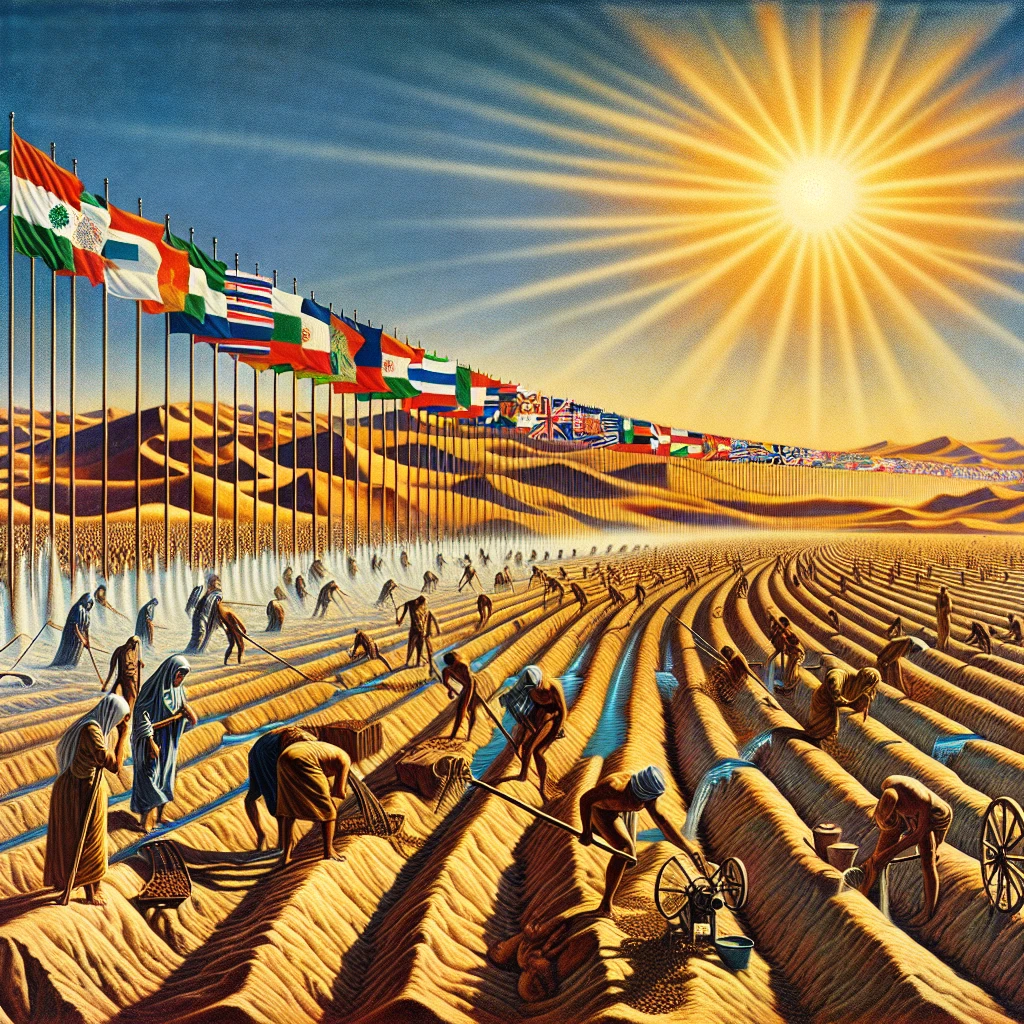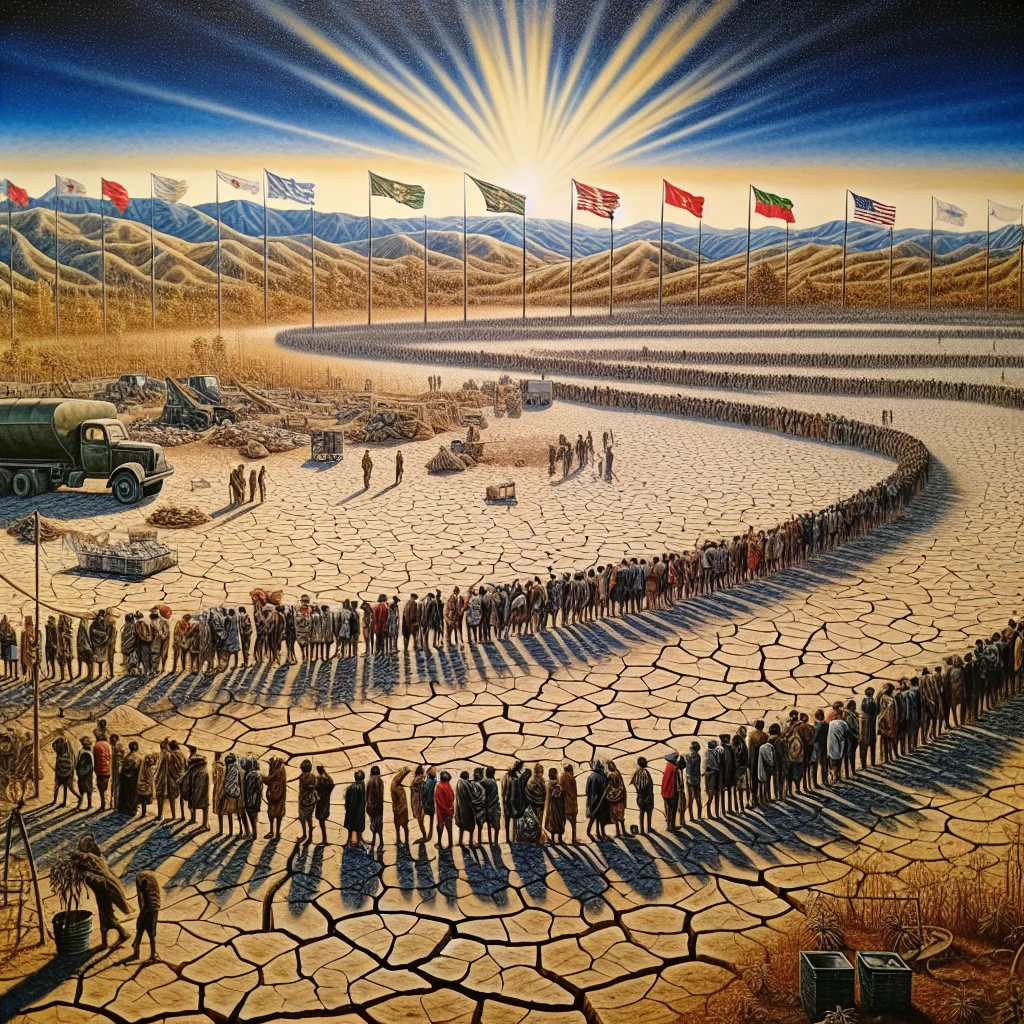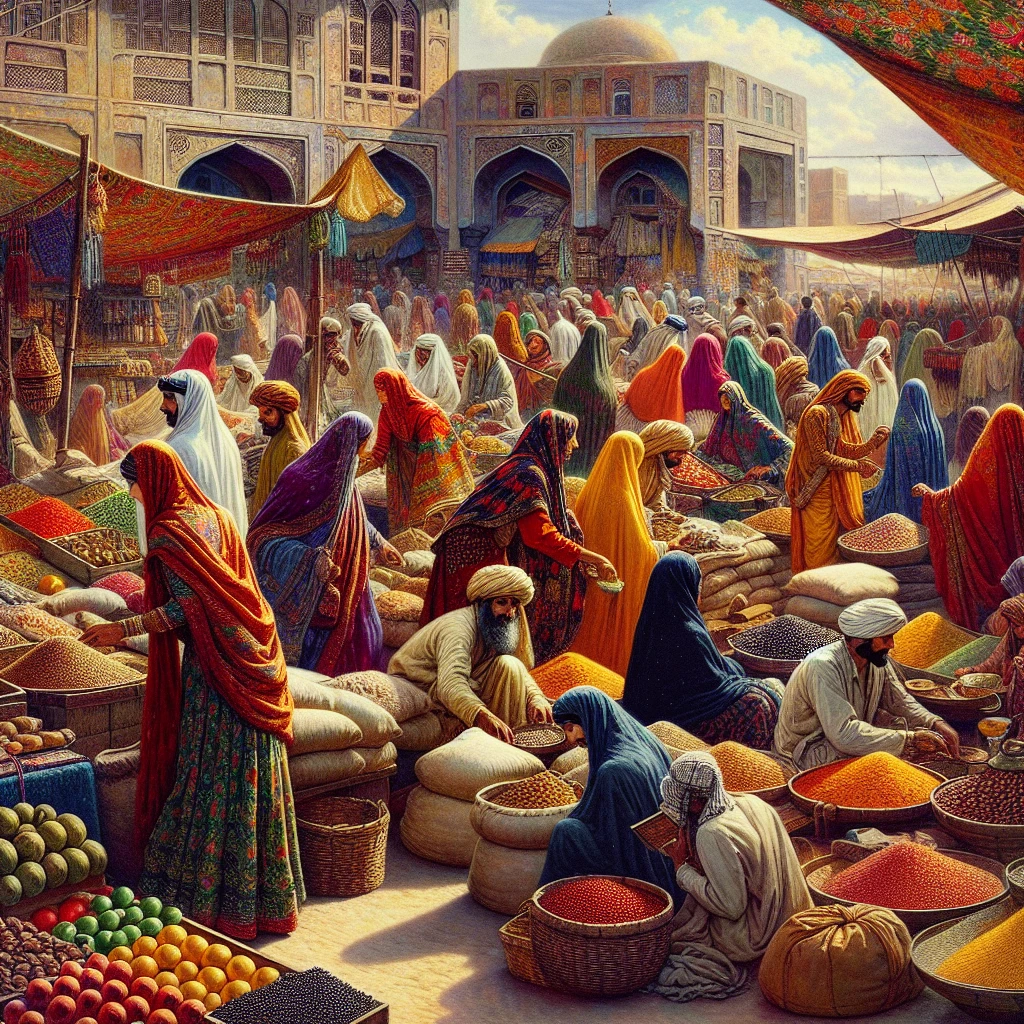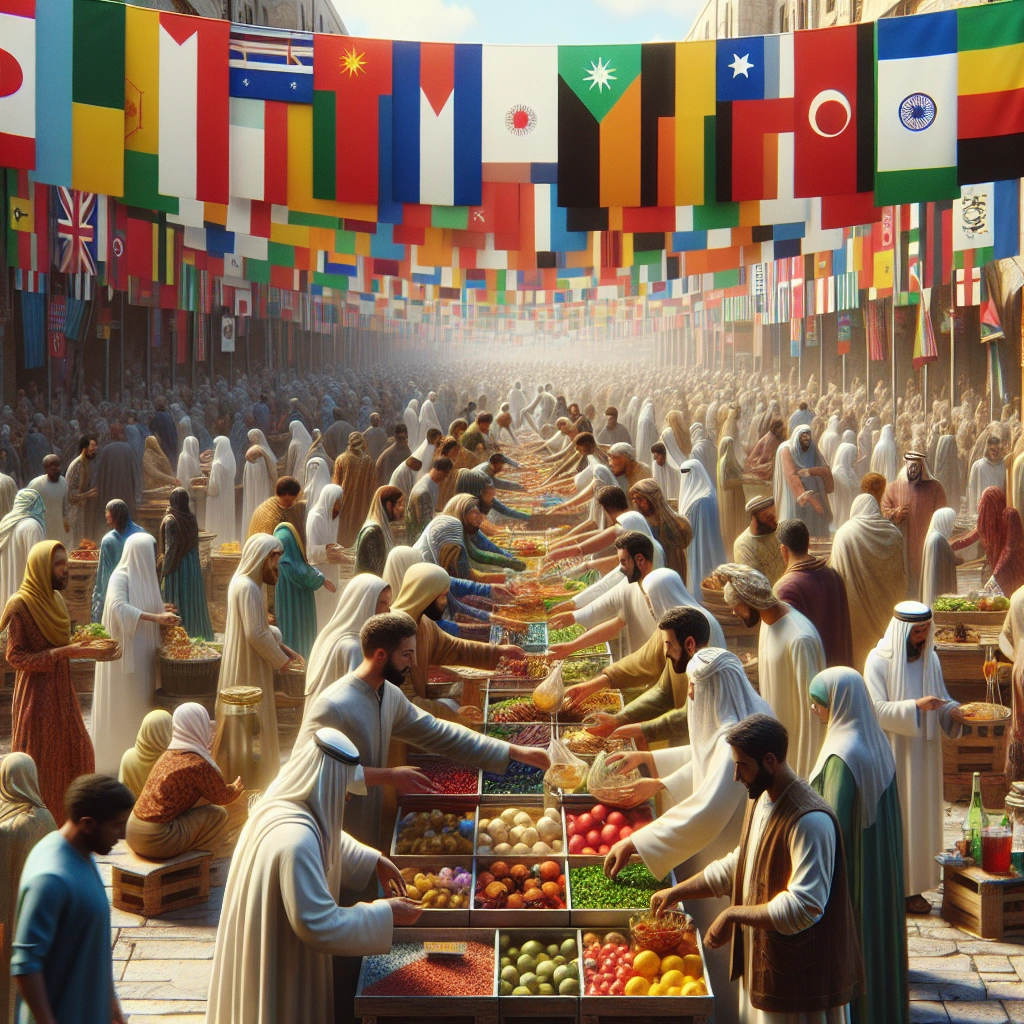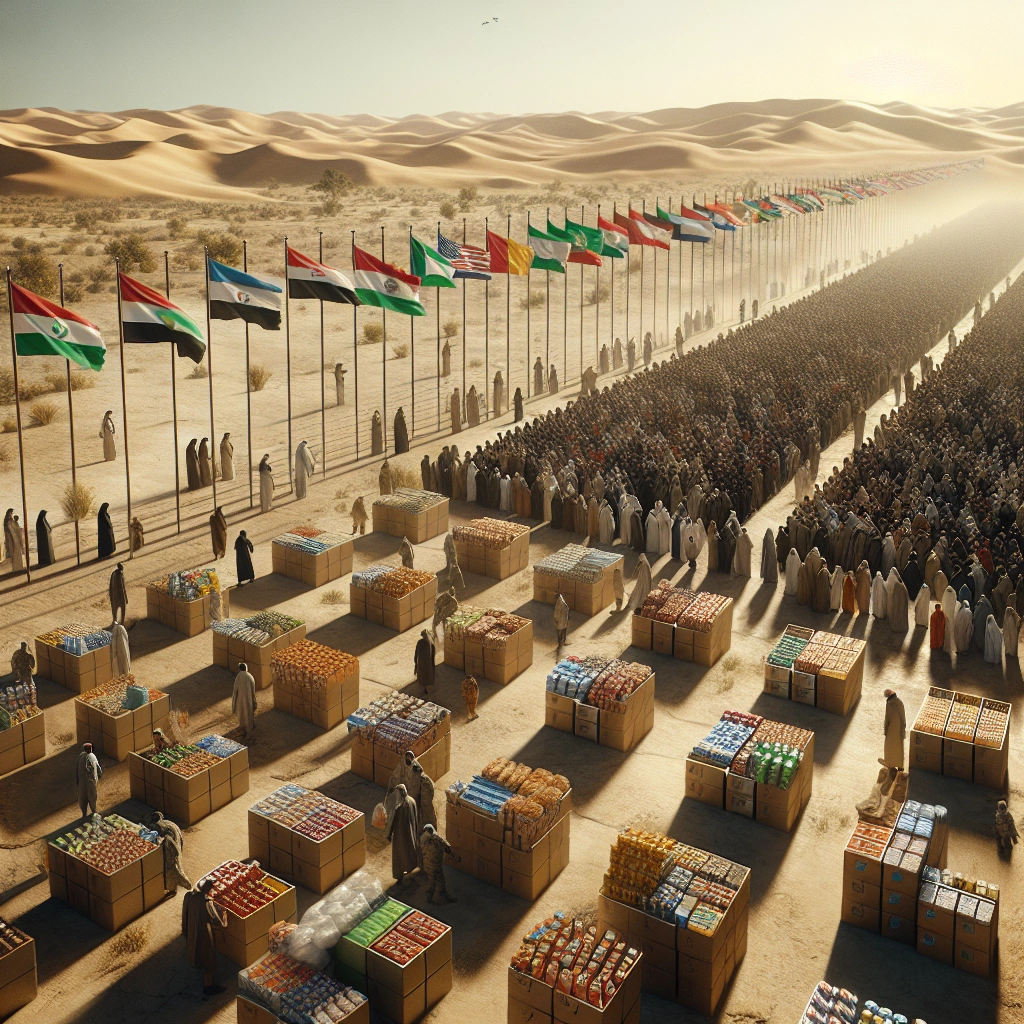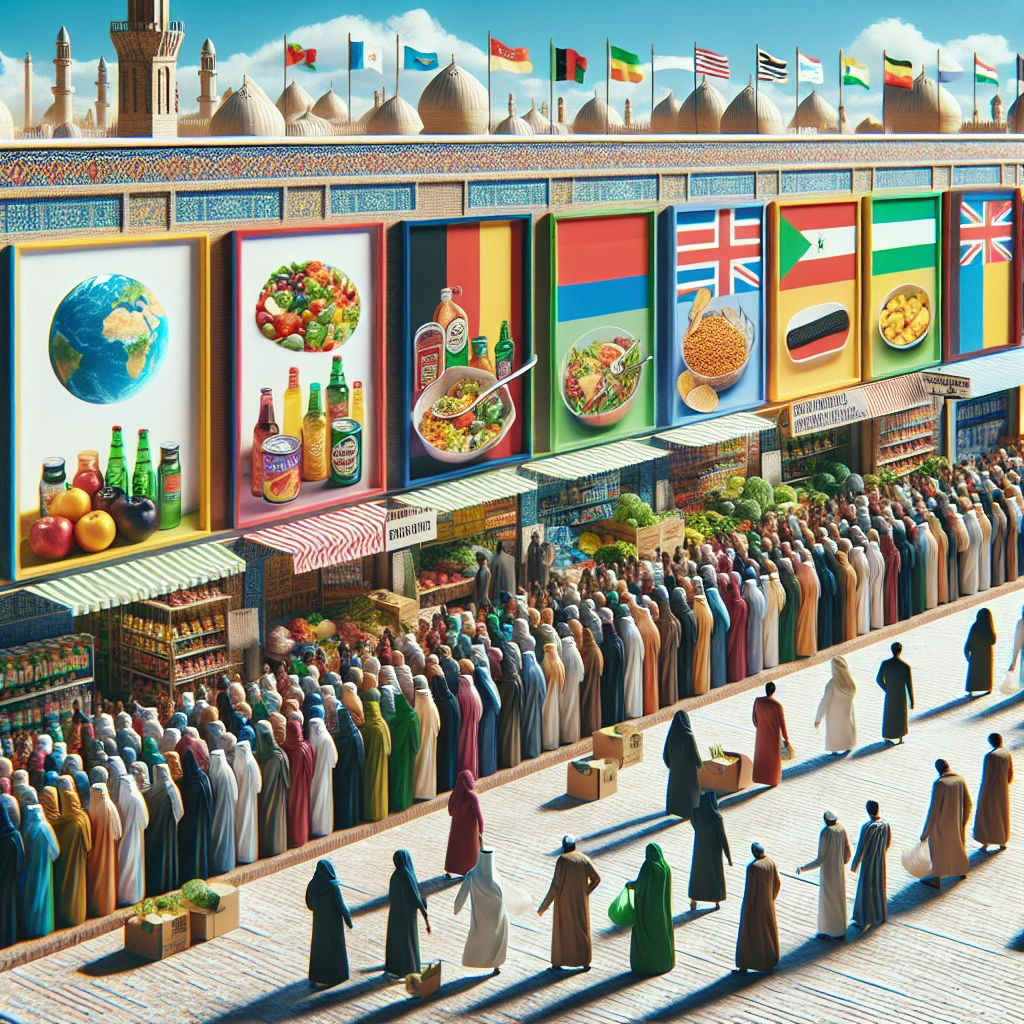

Food shortage refers to the insufficient availability of food to meet the demands of the population in a specific region or country. Understanding the causes of food shortages is crucial for addressing the issue and implementing effective solutions to ensure food security.
In Middle Eastern countries, food shortages are a significant concern, exacerbated by factors such as conflict, political instability, climate change, reliance on food imports, and supply chain disruptions. These factors contribute to the challenges of meeting the food needs of the population, leading to increased food insecurity in the region.
Political instability
Political instability in Middle Eastern countries has a significant effect on food production and distribution. Ongoing conflicts and unrest disrupt agricultural activities, leading to reduced crop yields and hindering the distribution of essential food supplies.
This instability creates an environment of uncertainty and insecurity, impacting the overall food security for the population.
Effect on food production and distribution
Political instability in the Middle East has detrimental effects on food production and distribution. The ongoing conflicts and civil unrest disrupt agricultural activities, leading to reduced crop yields and hindering the distribution of essential food supplies.
The constant threat of violence and displacement of labor further compound these challenges, making it increasingly difficult to maintain consistent and reliable agricultural output in politically volatile environments.
Examples of political conflicts causing food shortages
Numerous political conflicts in the Middle East have resulted in severe food shortages. For instance, ongoing sectarian violence and armed conflicts have exacerbated the problem of hunger, leading to critical food security issues in various countries across the region.
This includes conflicts in Syria, Yemen, and Iraq, where food shortages have been exacerbated by political instability and violence, significantly impacting the well-being of the population.
Impact on economic stability
The impact of political instability on food shortages extends to economic stability. This instability not only disrupts food production and distribution but also creates economic uncertainty.
It leads to a reduction in investments, impedes economic development, and hinders the overall economic growth of these nations. The combination of political conflicts and food shortages significantly strains the economic stability of the affected countries.
| Country | Example of Impact |
|---|---|
| Syria | prolonged conflict led to widespread food shortages, exacerbating the already dire economic situation |
| Yemen | ongoing political unrest and violence have contributed to a severe humanitarian crisis with food scarcity |
| Iraq | political conflicts have disrupted agriculture, leading to food shortages and economic instability |
Climate change
Climate change is contributing to severe drought and water scarcity around the world. As temperatures rise, the frequency and intensity of droughts are increasing, leading to water shortages in many regions, including the Middle East.
In addition to this, climate change is adversely affecting agriculture and food production. Alterations in temperature, rainfall patterns, and frost-free days are disrupting traditional farming practices, making it more challenging to grow crops and raise animals.
These changes in climate directly impact food availability and access, exacerbating food shortages in the Middle Eastern countries. For example, extreme weather events like droughts and floods are making it increasingly difficult for farmers to maintain a consistent food supply, further worsening the situation.
Drought and water scarcity
Climate change is escalating the severity and frequency of droughts, leading to acute water scarcity in various regions globally. The Middle Eastern countries are particularly vulnerable to this phenomenon, exacerbating the challenges they face in obtaining safe drinking water and sustaining agricultural practices.
Effects on agriculture and food production
The effects of climate change on agriculture and food production are substantial. Shifts in temperature, rainfall patterns, and frost-free days are disrupting traditional farming methods, causing difficulties in growing crops and raising livestock.
These changes directly impact food quality and availability, making it harder for Middle Eastern countries to maintain a stable food supply.
Examples of how climate change exacerbates food shortages
An example of how climate change exacerbates food shortages can be seen in the increased frequency and intensity of extreme weather events like droughts and floods. These events disrupt agricultural practices, making it challenging for farmers to grow and harvest crops consistently, thus contributing to food shortages in the Middle East.
| Climate change impact | Middle Eastern countries flags |
|---|---|
| Drought and water scarcity | Vulnerable to acute water scarcity |
| Effects on agriculture and food production | Disrupting traditional farming practices |
| Exacerbating food shortages | Increased frequency of extreme weather events |
Climate change plays a significant role in exacerbating food shortages in Middle Eastern countries, primarily through the escalating drought and water scarcity, the disruptive effects on agriculture and food production, and the increasing occurrence of extreme weather events that impact food supply.
Economic challenges
Impact of inflation and currency devaluation
The impact of inflation and currency devaluation in the Middle Eastern countries flags contributes heavily to the food shortages. High food inflation, collapsing currencies, and stagnant incomes have left families unable to afford basic food necessities.
The combination of these factors has led to a significant increase in food prices, making it difficult for the average citizen to afford essential items.
Trade restrictions and sanctions
Additionally, trade restrictions and sanctions have exacerbated the economic challenges, further contributing to the food shortages. Some countries have imposed restrictions on food trade, aiming to control domestic food inflation.
However, these restrictions have led to unintended consequences in vulnerable food-importing countries, resulting in increased prices and exacerbating food insecurity.
Examples of economic factors contributing to food shortages
In many developing economies across Africa, Asia, Latin America, and the Middle East, conflict, economic shocks, climate change, and soaring prices for food and fertilizer have created a perfect storm. These factors have combined to create a hunger crisis of unprecedented proportions, leaving vast populations without adequate food supplies.
| Economic Challenges | Impact |
|---|---|
| Inflation | High food inflation and currency devaluation have left families unable to afford basic food necessities. |
| Trade Restrictions | Imposed restrictions have led to unintended consequences in vulnerable food-importing countries, resulting in increased prices and exacerbating food insecurity. |
| Contributing Factors | Conflict, economic shocks, climate change, and soaring prices for food and fertilizer have combined to create a hunger crisis of unprecedented proportions. |
The economic challenges in the Middle Eastern countries flags are primarily driven by inflation, currency devaluation, trade restrictions, and a combination of other factors such as conflict and climate change. These challenges have created a dire food shortage situation, which requires immediate attention and strategic interventions to alleviate the suffering of the affected populations.
Conflict and war
War and conflict often lead to the destruction of critical infrastructure, including power plants, water supply systems, and agricultural facilities. This destruction disrupts food production and distribution, exacerbating food shortages in middle eastern countries.
Furthermore, the displacement of populations due to conflict further strains already limited food resources, creating an environment of scarcity and food insecurity.
Instances of conflict in the middle east have caused extensive damage to infrastructure essential for food production and distribution. For example, in Syria, ongoing conflict has led to the destruction of irrigation systems and farmland, significantly reducing agricultural output and contributing to food shortages.
Similarly, the conflict in Yemen has resulted in the devastation of key infrastructure, jeopardizing food supplies and leaving millions at risk of starvation.
The displacement of populations due to conflict compounds food shortages in middle eastern countries. Displaced individuals often lose access to their sources of livelihood and face severe economic hardship, making it challenging to secure an adequate food supply for themselves and their families.
As a result, conflict-induced displacement significantly contributes to the food crisis experienced in the region.
Examples of how conflict leads to food shortages are abundant in the middle east. For instance, the conflict in Iraq has led to the disruption of food supply chains, resulting in limited access to essential food items for the population.
Additionally, ongoing conflicts in countries such as Libya and Lebanon have created an environment where food scarcity is a pressing concern, directly stemming from the repercussions of war and conflict.
| Country | Specific Impact of Conflict on Food Supply |
|---|---|
| Syria | Destruction of agricultural infrastructure |
| Yemen | Disruption of food distribution networks |
| Iraq | Limited access to essential food items |
| Libya | Pressing concerns of food scarcity |
Conflict and war directly contribute to food shortages in middle eastern countries through the destruction of vital infrastructure, population displacement, and disruptions to food supply chains. These factors combine to create a challenging environment where ensuring an adequate food supply becomes a considerable struggle.
Consequently, addressing the root causes of conflict is paramount to alleviating food shortages in the region.
Food waste and food loss
Reasons for food waste and loss in Middle Eastern countries
- Lack of Infrastructure: Middle Eastern countries often lack the necessary infrastructure for proper food preservation and storage, leading to significant food loss.
- Cultural Norms: Cultural practices such as excess food preparation during events and gatherings contribute to food waste in Middle Eastern countries.
- Supply Chain Inefficiencies: Inefficient supply chains and distribution systems result in food losses during transportation and storage.
- Climate Challenges: Harsh environmental conditions in the region can lead to crop failures and food spoilage, further contributing to food loss.
- Lack of Awareness: Limited awareness about the impact of food waste and effective preservation methods adds to the problem in Middle Eastern countries.
Impact on food availability
- Nutritional Deficiencies: Food waste and loss contribute to nutritional deficiencies, impacting the availability of essential nutrients for the population.
- Economic Burden: The wastage of food resources puts a strain on the economy and exacerbates food scarcity, affecting the availability of affordable food options.
- Healthcare Costs: Rising healthcare costs due to malnutrition and related illnesses burden the healthcare system, affecting overall food availability and accessibility.
- Social Instability: Food shortages resulting from waste and loss can lead to social unrest and instability within Middle Eastern countries, impacting food availability for vulnerable populations.
Solutions to reduce food waste and loss
- Education and Awareness: Implementing nationwide awareness campaigns to educate citizens about the impact of food waste and the importance of adopting sustainable food practices.
- Investment in Infrastructure: Allocating resources to improve food storage and preservation infrastructure to minimize food loss throughout the supply chain.
- Policy Reforms: Implementing policies to regulate food industry practices, including standardized portion sizes and proper handling of surplus food to reduce waste.
- Technological Innovations: Embracing technology for better inventory management, preservation techniques, and distribution systems to minimize food loss and promote food availability.
- Community Engagement: Encouraging community involvement through food donation programs and initiatives to redistribute surplus food to those in need, reducing overall food waste and enhancing food availability.
| Reasons for Food Waste and Loss | Impact on Food Availability | Solutions to Reduce Food Waste and Loss |
|---|---|---|
| Lack of Infrastructure | Nutritional Deficiencies | Education and Awareness |
| Cultural Norms | Economic Burden | Investment in Infrastructure |
| Supply Chain Inefficiencies | Healthcare Costs | Policy Reforms |
| Climate Challenges | Social Instability | Technological Innovations |
| Lack of Awareness | Community Engagement |
Agricultural challenges
Limited arable land
The limited availability of arable land in Middle Eastern countries poses a significant challenge to food production. The region’s arid climate and desert landscapes restrict the amount of land suitable for agriculture.
As a result, there is intense competition for the limited fertile soil, making it challenging to meet the growing demand for food.
Water management issues
Water scarcity is a pressing concern that directly impacts agricultural productivity in Middle Eastern countries. The arid climate and limited freshwater sources make it difficult to sustain irrigation for crops, leading to reduced yields and food shortages.
Additionally, the competition for water resources from urbanization and industrial sectors further exacerbates the water management challenges faced by agricultural producers.
Examples of agricultural challenges affecting food production
The agricultural sector in the Middle East faces various challenges that impact food production. These include soil erosion due to extreme weather events, intensive farming practices, and improper land management.
Moreover, the impacts of climate change, such as droughts and high nighttime temperatures, significantly affect crop yields, contributing to food scarcity in the region.
Dependence on food imports
The Middle Eastern countries heavily depend on food imports to meet their population’s dietary needs due to limited agricultural capabilities and resources. This overreliance on imported food makes these nations vulnerable to global supply chain disruptions, especially in times of conflicts, wars, or natural disasters in exporting countries.
Vulnerability to global supply chain disruptions
The Middle Eastern countries’ reliance on food imports leaves them vulnerable to global supply chain disruptions, such as conflicts, trade embargoes, or environmental disasters in exporting countries. These disruptions can lead to sudden shortages of essential food items, affecting the food security of the population and triggering price hikes.
Impact on food security
The impact of dependence on food imports is detrimental to the food security of Middle Eastern countries. Any disruption in the global food supply chain can lead to immediate shortages and price escalations, affecting the accessibility and affordability of necessary food items for the local population.
This poses significant challenges in ensuring a stable and secure food supply for the people.
Efforts to increase domestic food production
To address the vulnerability caused by dependence on food imports, some Middle Eastern countries have initiated efforts to boost domestic food production. These initiatives include investments in agricultural infrastructure, technology adoption, and agricultural research to enhance local food production capabilities, aiming to reduce their reliance on food imports and mitigate the risks associated with global supply chain disruptions.
Population growth
Population growth puts a significant strain on food resources, as the increasing number of people results in higher demand for food. This strain is further exacerbated by rising income levels, which impact consumption patterns and intensify the pressure on food supplies.
As the population expands, the challenges associated with meeting food demand become more pronounced. The need to produce, distribute, and ensure adequate food supply for a larger population presents significant logistical and resource-based hurdles that need to be addressed to prevent food shortages.
One of the key examples of how population growth contributes to food shortages is the increased pressure on agricultural practices and resources. Rapid population growth often leads to unsustainable and intensive farming practices, which can deplete soil nutrients, reduce vegetation, and exhaust water resources.
In addition, unequal land distribution and deepening rural poverty exacerbate the challenges in meeting food demand, especially in developing countries. These examples demonstrate the complex and multifaceted impact of population growth on food shortages in various regions.
| Challenges in Meeting Food Demand |
|---|
| 1. Intensive farming practices |
| 2. Unequal land distribution |
| 3. Deepening rural poverty |
Addressing the relationship between population growth and food shortages requires comprehensive strategies that focus on sustainable agricultural practices, equitable resource distribution, and poverty alleviation. By understanding and mitigating the impact of population growth on food resources, we can work towards ensuring food security for current and future generations.
Infrastructure and logistical issues
Impact on transportation and food distribution
Outdated infrastructure and poor road conditions can disrupt the supply chain in Middle Eastern countries, leading to increased food waste. Inadequate transportation infrastructure hinders the efficient movement of goods from production areas to distribution centers and, To consumers.
Lack of storage facilities
Inadequate storage facilities contribute to significant food spoilage and wastage in the Middle East. The lack of proper storage infrastructure results in upwards of 20% of food produced being lost due to factors such as rodents and temperature management challenges.
Examples of how infrastructure and logistical issues affect food availability
The impact of logistical issues on food availability is evident from the disruptions caused by COVID-19 in the US food supply chain. Overcapacity in storage facilities and distribution networks, especially in the cold chain, has led to significant implications.
Additionally, the COVID-19 pandemic highlighted the importance of maintaining logistical efficiency in the global food industry during crises.
Socio-economic disparities
Access to food among different social classes
Social class differences in food consumption have a significant impact on access to food. Lower-income households often struggle to afford nutritious food, leading to food insecurity.
In contrast, higher-income groups have easier access to a wide variety of healthy food options, contributing to disparities in health outcomes.
Impacts on vulnerable populations
The impact of socio-economic disparities on vulnerable populations is profound. Racial and ethnic minority groups and individuals from socioeconomically disadvantaged backgrounds are disproportionately affected by food insecurity.
This can result in increased risk for chronic health conditions such as diabetes, obesity, heart disease, and mental health disorders.
Efforts to address socio-economic disparities in food availability
Efforts to address socio-economic disparities in food availability include government assistance programs like the Supplemental Nutrition Assistance Program (SNAP), which aim to provide support to low-income households. Furthermore, initiatives promoting access to and affordability of healthy foods, such as the Gus Schumacher Nutrition Incentive Program, play a crucial role in addressing these disparities.
Technological challenges
Access to modern agricultural technologies
Access to modern agricultural technologies is crucial in mitigating food shortages in Middle Eastern countries. Technologies such as precision agriculture, smart irrigation, biotechnology, and automation play a vital role in enhancing productivity and addressing resource scarcity. For instance, the use of satellite farming with hyperspectral satellites provides detailed information about each pixel, reducing the need for expensive sensors. Additionally, the integration of IoT and sensors allows for real-time monitoring of produce and livestock, contributing to sustainable and efficient farming practices.
Use of sustainable farming methods
Sustainable farming methods are essential for ensuring long-term food security in Middle Eastern countries. Practices like rotating crops, embracing diversity, permaculture, and urban agriculture promote healthier soil, improved pest control, and resource efficiency. Furthermore, innovations such as vertical farming and agroforestry offer promising solutions to maximize agricultural output while minimizing environmental impact. These methods contribute to the resilience and sustainability of food production, crucial aspects in addressing food shortages.
Examples of how technology can mitigate food shortages
Technology can significantly mitigate food shortages through various advancements. Utilizing AI can lead to improved crop yields, higher quality, and enhanced food safety. Moreover, robotics, IoT, and artificial intelligence enable efficient labor management, reduce operational costs, and optimize crop cultivation. For instance, the use of 3-D printers in repairing machinery and developing prosthetics for animals provides clear advantages to farms worldwide. Leveraging these technological innovations is pivotal in alleviating food shortages and enhancing agricultural sustainability.
| Technology | Contribution |
|---|---|
| Precision Agriculture | Enhances crop productivity |
| IoT and Sensors | Real-time monitoring and resource optimization |
| Vertical Farming | Maximizes agricultural output |
Addressing technological challenges by improving access to modern agricultural technologies, implementing sustainable farming methods, and leveraging technological solutions is crucial in mitigating food shortages in Middle Eastern countries. These advancements not only enhance agricultural productivity but also contribute to long-term food security and sustainability.
Historical context
The current food crisis in Middle Eastern countries can be attributed to a combination of historical events and ongoing geopolitical tensions. The region has been plagued by conflicts and instability, causing disruptions to food production and distribution.
The historical events of wars, climate extremes, and economic shocks have all contributed to exacerbating the existing food shortages in these nations.
The past food shortages, particularly during events like the food crisis of 2007-2008, have provided valuable lessons for addressing the current situation in Middle Eastern countries. Cooperation between nations and a focus on domestic self-sufficiency in food production have emerged as critical strategies to mitigate the impact of food crises in the region.
Addressing the implications for future food security in the Middle East calls for a multifaceted approach that takes into account the lessons learned from past crises and incorporates measures to enhance domestic food production, strengthen regional cooperation, and build resilience to climate change and geopolitical tensions.
| Historical Events | Lessons Learned | Future Implications |
|---|---|---|
| Wars | Cooperation is essential | Strengthening food security |
| Climate Extremes | Domestic self-sufficiency | Resilience and cooperation |
| Economic Shocks | Regional cooperation | Climate resilience |
Global influence
Role of international organizations in addressing food shortages
The role of international organizations in addressing food shortages is pivotal. Bodies such as the Food and Agriculture Organization of the United Nations (FAO) and the World Food Programme (WFP) play a crucial role in alleviating hunger and malnutrition.
These organizations work tirelessly to eliminate food insecurity and ensure the availability of food in Middle Eastern countries facing shortages.
Impact of global policies on food availability
Global policies have a significant impact on food availability in the Middle East. The World Bank and other multilateral development banks have a key role in increasing trade financing for agricultural commodities and supporting critical logistics and infrastructure upgrades.
Moreover, addressing factors such as food production, distribution, and access to fertilizers is essential in improving global food policies and ensuring sufficient food availability.
Examples of global influence on food security in the Middle East
The Middle East’s growing role in global food security is evident, especially in the face of regional challenges like the Ukraine war and the ongoing pandemic. High food import levels, economic shocks, and unsustainable diets are contributory factors to food insecurity in the region.
Moreover, conflicts in countries such as Yemen and Syria have exacerbated the food security situation, highlighting the global influence on food security in the Middle East.
| Global Influence Examples | Impact |
|---|---|
| FAO and WFP initiatives | Significant aid and relief |
| Multilateral development banks’ support | Improved trade financing and logistical upgrades |
| Middle East regional challenges | Heightened food insecurity due to conflict and economic shocks |
The global influence on food security in the Middle East is multifaceted, requiring collaborative efforts from international organizations and the implementation of effective global policies to mitigate food shortages and ensure sustainable food availability.
Public health implications
Malnutrition and food-related health issues
Poor accessibility and affordability of nutritious food contribute to malnutrition in middle eastern countries, leading to various health issues such as undernutrition, inadequacy of essential vitamins and minerals, and overweight problems. These conditions increase the risks of chronic diseases such as diabetes, obesity, heart disease, and mental health disorders.
Inadequate nutrition not only affects physical health but also takes a toll on mental well-being.
Impact on healthcare systems
The scarcity of nutritious food has direct implications on healthcare systems, as individuals affected by food shortages are at higher risk of utilizing emergency department and inpatient healthcare services. This leads to increased healthcare costs due to the prevalence of chronic health conditions associated with malnutrition.
Addressing food insecurity and poor nutrition as essential health issues can lead to substantial improvements in community health and reduce healthcare-related costs.
Efforts to address public health consequences of food shortages
Efforts aimed at addressing the public health consequences of food shortages include food assistance programs such as the National School Lunch Program (NSLP), the Women, Infants, and Children (WIC) program, and the Supplemental Nutrition Assistance Program (SNAP). Additionally, policies focusing on poverty alleviation and eliminating underlying causes of food insecurity are crucial.
Moreover, it is essential to increase enrollment in nutrition assistance programs and conduct further research to understand the influence of food insecurity on health outcomes and disparities. The Biden-Harris administration has also taken actions to reduce food insecurity amid the COVID-19 crisis, emphasizing the significance of addressing this critical issue to ensure the well-being of the population.
| Prospective Solution | Key Highlights |
|---|---|
| Food Assistance | National School Lunch Program, WIC |
| Poverty Alleviation | Addressing underlying causes |
| Research | Understanding health disparities |
This holistic approach encompasses both short-term alleviation through food assistance and long-term solutions through poverty alleviation and research initiatives.
Cultural and traditional factors
Influence on food consumption patterns
Food consumption patterns in the Middle Eastern countries are significantly influenced by cultural and traditional factors. For example, religious traditions and beliefs often dictate dietary restrictions, leading to specific patterns of food consumption. The practice of fasting during religious events like Ramadan directly impacts the timing and types of meals consumed, influencing overall food consumption patterns within these societies.
Role of food in cultural identity
Food plays a pivotal role in shaping the cultural identity of Middle Eastern countries. Traditional recipes, cooking techniques, and dining etiquette are essential components of cultural heritage, reflecting the values and beliefs of different communities. The choice of food allows for a deeper understanding of the contextual aspects of identity, making it a way of life passed down from generation to generation. This culinary heritage serves as a unique identifier of cultural identity and heritage, providing a sense of belonging and continuity for the people of these nations.
Challenges in addressing food shortages while respecting cultural traditions
Addressing food shortages in Middle Eastern countries is a complex task, especially when considering the preservation of cultural traditions. Any attempts to alleviate food shortages must be approached with sensitivity towards respecting cultural dietary practices and preferences. This presents a challenge as interventions must be tailored to meet the specific cultural and traditional needs of these societies while ensuring sustainable solutions to food shortages. Striking a balance between addressing food scarcity and honoring cultural traditions requires innovative and culturally sensitive approaches to achieve sustainable food security.
| Influence on food consumption patterns | Role of food in cultural identity | Challenges in addressing food shortages while respecting cultural traditions |
|---|---|---|
| Religious dietary restrictions and fasting practices significantly influence food consumption patterns in Middle Eastern countries. | Food serves as an essential element of cultural heritage, reflecting the values, beliefs, and identity of different communities. | Resolving food shortages in the region requires culturally sensitive interventions that respect and preserve traditional dietary practices while addressing scarcity sustainably. |
This table summarizes the intertwined nature of cultural factors, food consumption patterns, and challenges in addressing food shortages in Middle Eastern countries.
Community resilience
Local initiatives to address food shortages
Local initiatives play a crucial role in addressing food shortages in Middle Eastern countries. For instance, community gardening projects enable residents to grow their own produce, reducing reliance on external food sources.
Additionally, educational programs that promote sustainable farming methods empower locals to cultivate their own food, contributing to long-term food security.
Role of community organizations in providing food aid
Community organizations serve as essential pillars in providing food aid to those affected by shortages in the Middle East. For example, food banks and pantries collaborate with local businesses and individuals to gather and distribute food resources to vulnerable communities.
Moreover, community-led meal programs offer regular sustenance to those in need, fostering a sense of unity and support within the region.
Examples of community resilience in the face of food insecurity
Communities in the Middle East have demonstrated remarkable resilience amidst food insecurity. One such example is the establishment of community food cooperatives, where locals collectively procure and distribute food supplies, ensuring equitable access for all members.
Additionally, grassroots movements advocating for governmental policy changes to improve food distribution systems showcase the determined effort of communities to address food insecurity.
| Community Resilience Initiatives | Impact |
|---|---|
| Community gardening projects | Reduced reliance on external food sources |
| Educational programs on sustainable farming | Empowered locals for long-term food security |
| Food banks and pantries collaboration | Vital food distribution to vulnerable communities |
| Community-led meal programs | Regular sustenance and community support |
| Community food cooperatives | Equitable access to food supplies |
| Grassroots movements for policy changes | Advocacy for improved food distribution systems |
Recommended Amazon Products for Food Shortages in Middle Eastern Countries
Here’s a curated list of products that can help address the causes of food shortages in Middle Eastern countries. These recommendations are based on their functionality, popularity, and customer reviews.
Portable Water Filter Straw
This portable water filter straw is essential for addressing water scarcity as a cause of food shortages. It can filter water from any freshwater source, providing clean and safe drinking water.
| Pros | Cons |
|---|---|
| Filters up to 1500L | Requires replacement filters |
| Compact and portable | Limited to freshwater sources |
| Removes 99.99% of waterborne bacteria and parasites |
Solar-Powered Portable Generator
A solar-powered portable generator can help mitigate the impact of power outages and infrastructure issues on food production and storage.
| Pros | Cons |
|---|---|
| Renewable energy source | Requires sunlight for charging |
| Quiet and eco-friendly | Limited power output for heavy-duty use |
| Portable and easy to use | Initial investment cost |
Organic Vegetable Seeds Starter Kit
To address limited agricultural land and promote sustainable food production, an organic vegetable seeds starter kit is recommended. It provides the essentials for growing various vegetables at home.
| Pros | Cons |
|---|---|
| Non-GMO and organic seeds | Requires gardening knowledge and care |
| Variety of vegetable seeds | Dependent on suitable growing conditions |
| Allows self-sufficiency in food production |
Manual Grain Grinder
In the face of economic challenges and dependence on food imports, a manual grain grinder can help individuals process grains for food consumption, promoting self-sufficiency.
| Pros | Cons |
|---|---|
| Adjustable grain coarseness | Requires physical effort for grinding |
| Made of durable materials | Limited grinding capacity |
| Suitable for various grains |
Nutrient-Rich Superfood Powder
For addressing malnutrition and food-related health issues, a nutrient-rich superfood powder is recommended. It provides essential nutrients in a convenient powder form.
| Pros | Cons |
|---|---|
| Packed with vitamins and minerals | Dependent on individual taste preferences |
| Long shelf life | May not be suitable for all dietary restrictions |
| Easy to incorporate into daily diet |
Top Recommended Product for Food Shortages in Middle Eastern Countries
If you’re looking for the best solution for addressing food shortages in Middle Eastern countries, we highly recommend the Portable Water Filter Straw (https://www.amazon.com/s?k=Portable+Water+Filter+Straw). It has proven to be effective in providing safe drinking water in various conditions, which is crucial for addressing water scarcity and its impact on food shortages. Ready to improve access to clean water and mitigate food shortages? Check out the Portable Water Filter Straw today for the best results!


Conclusion
The main causes of food shortages in Middle Eastern countries are primarily due to political instability, conflict, and war, which disrupt agricultural production and distribution. These factors have led to limited access to food and increased food prices, exacerbating the crisis in the region.
It is imperative that immediate action be taken to address the food shortage crisis in the Middle East. Efforts should focus on providing humanitarian aid, promoting peace and stability, and supporting local farmers to increase food production and distribution in the region.
Looking ahead, there is hope for improving food security in the Middle East through sustainable agricultural practices, investments in infrastructure, and international collaboration to address the root causes of food shortages. By working together, there is potential for long-term solutions to alleviate the food crisis in the region.





